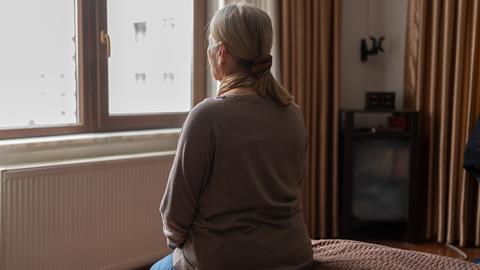In Why we need a National Legal Service, Roger Smith called for reform of the post-LASPO legal landscape. We agree. In Hull we began reform in 2016 when we launched a women-only family law firm, Affordable Justice. This was our response to both the disproportionate impact of LASPO on women, and to the weaponisation of these inequalities by ex-partners using the family law system to sustain post-separation domestic abuse.

Actors within the family law system have long been naïve to the prevalence, intent and impact of post-separation abuse against women. Family law provides an arena for ex-partners to exert control, coercion and trauma. Studies find 50 to 85% of cases in family law courts involve domestic abuse. Further studies estimate domestic abuse continues post-separating in 88% of instances.
Withdrawal of legal aid – on which women are disproportionately reliant – has increased costs for women. Ex-partners use this as a tool of economic abuse. Research shows that 90% of women are impoverished by the family law process. Abusers destabilise women’s financial security by creating delays and repeat applications, driving up self-funded costs, creating debt, and forcing the sale of homes. Women have been driven to bankruptcy.
The adversarial nature of the family law process with its demand for evidence and personal testimony and the high stakes of child contact, threatens the material safety of women and children, perpetuating fear, coercion and control. Often our clients have endured surveillance, false accusations and investigation, intimidation, and the devastating loss of child contact. The resulting trauma has pushed some women to the brink of suicide.
Yet, despite women’s testimonies, extensive research, and findings in own practice, the family law system remains unsophisticated in its understanding of how its own processes and supposed objectivity create a theatre for post-separation abuse. Not only are the inherent social and financial inequalities of women not given credence in the objectivity of the courts, but women, their choices, and their evident trauma are not respected. A study by the government’s Domestic Abuse Commissioner found only 12% of women highly rated the legal support they received during the process. Compare this to 97% in our trauma-informed practice.
It’s clear that justice in family law means legal justice and relief from trauma and harm must be intertwined. To effectively address the post-LASPO justice gap we need to see more services like ours available to more women: legal advice and representation which is trauma-informed, builds on the choices women want to make for their own safety, and provided at affordable prices. Until this happens, women will continue to be both denied justice and actively harmed by their attempts to access it.
Lisa Hilder is a director of Affordable Justice
This article is now closed for comment.
































8 Readers' comments